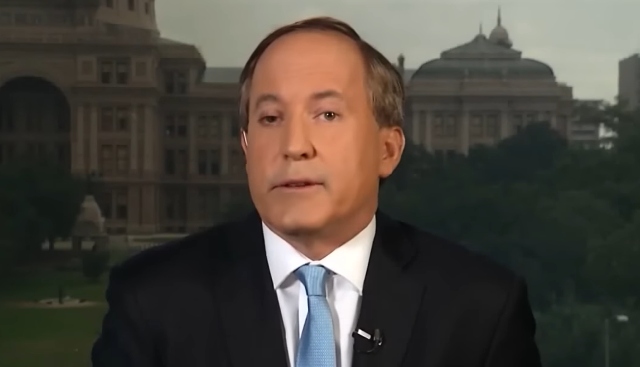 Parler
Parler Gab
Gab
- Ken Paxton has harshly criticized the 2025 Dietary Guidelines Advisory Committee's report, claiming it prioritizes ideology over science and could harm public health.
- The report dismisses red meat and animal proteins in favor of plant-based alternatives, a decision challenged by 23 state attorneys general as unscientific and politically motivated.
- Federal dietary guidelines have long faced criticism for being influenced by special interests rather than focusing on public health, particularly in relation to past low-fat diet recommendations and current plant-based push.
- The guidelines significantly impact public health and nutrition policy, potentially affecting school lunch programs and food assistance, which could harm vulnerable populations relying on animal proteins.
- Attorneys general are demanding a complete overhaul of the guidelines, urging the new administration to prioritize scientific evidence over political considerations to address the health needs of the American people.
The battle over protein: Science vs. ideology
The 2025 Dietary Guidelines Advisory Committee’s report, released in late 2024, has drawn sharp criticism for its treatment of animal-based proteins. On page 25 of the report, the committee discusses the pros and cons of reducing beef, chicken and eggs in favor of legumes like beans and lentils. While the report acknowledges the fiber benefits of plant-based foods, it downplays the nutritional value of animal proteins, which have long been recognized as complete sources of essential amino acids. “Animal-based protein, including meat and eggs, have long been known to contribute to healthy diets,” said Oklahoma Attorney General Gentner Drummond, who co-signed the multistate letter challenging the report. “You have to consume significantly more calories of beans, peas, or lentils to equal the protein you can get from beef. I’m hopeful President Trump’s administration will correct the errors in the recommendations that were borne of non-scientific and non-medical factors.” Paxton echoed these sentiments, arguing that the report’s recommendations are not only unscientific but also detrimental to public health. “This report was written to appease a left-wing political ideology, not actually help people live healthier lives and combat the chronic diseases that millions of Americans are facing,” he said.The historical context: A pattern of failure
This is not the first time the federal government’s dietary guidelines have come under fire. For decades, critics have accused the U.S. Department of Agriculture (USDA) and the Department of Health and Human Services (HHS) of being influenced by special interests, including the food industry and environmental activists, rather than prioritizing the health of American citizens. The 1980s saw the rise of the low-fat diet craze, which was heavily promoted by the government despite mounting evidence that it contributed to the obesity epidemic. More recently, the push for plant-based diets has been criticized for ignoring the nutritional needs of vulnerable populations, including children, pregnant women and the elderly, who rely on animal proteins for essential nutrients like iron, vitamin B12 and omega-3 fatty acids. The Biden administration’s focus on “health equity” in its dietary recommendations has further fueled concerns that the guidelines are being shaped by political considerations rather than sound science. By prioritizing plant-based foods, the committee risks exacerbating health disparities, as low-income families often lack access to fresh produce and rely on affordable, nutrient-dense animal proteins to meet their dietary needs.The stakes: How dietary guidelines shape American lives
The federal government’s dietary guidelines are far more than mere suggestions—they have far-reaching implications for public health and nutrition policy. The guidelines influence everything from food labeling and marketing to the eligibility of foods for federal assistance programs like SNAP (Supplemental Nutrition Assistance Program). They also dictate the standards for school lunch programs, which serve millions of children across the country. If the Biden-era recommendations are adopted, they could lead to a reduction in the availability of animal-based proteins in school cafeterias and food assistance programs, potentially depriving vulnerable populations of essential nutrients. This is particularly concerning given the rising rates of chronic diseases like obesity, diabetes and heart disease, which disproportionately affect low-income communities.A call for reform
In their letter to the Trump administration, Paxton and his fellow attorneys general have called for a complete overhaul of the dietary guidelines, urging the new administration to reject the Biden-era recommendations and craft guidelines that reflect the latest scientific evidence. “The demonization of beef and animal-based sources of protein is antithetical to reality, but that’s exactly what you’d expect from a system that has propagated a status quo that has failed the American people for decades,” Paxton said. “President Donald Trump and Secretary Robert F. Kennedy Jr.’s mission to help Americans get healthier is absolutely critical at this moment in history, and I’m proud to stand with them as they work to make that happen.” As the debate over the 2025 Dietary Guidelines continues, one thing is clear: the health of millions of Americans hangs in the balance. Will the Trump administration heed the call for reform, or will it allow political agendas to continue dictating what ends up on our plates? Only time will tell, but for now, the fight for science-based nutrition policy is far from over. John Carter is a senior correspondent for The American Sentinel, specializing in health policy and government accountability. He has been covering the intersection of politics and public health for over 15 years. Sources include: TexasAttorneyGeneral.gov DallasExpress.com Yahoo.comPizza chain kicks out Republicans & Trump supporters, then realizes meaning of FAFO – ‘deeply sorry’
By News Editors // Share
Governments continue to obscure COVID-19 vaccine data amid rising concerns over excess deaths
By patricklewis // Share
Tech giant Microsoft backs EXTINCTION with its support of carbon capture programs
By ramontomeydw // Share
Germany to resume arms exports to Israel despite repeated ceasefire violations
By isabelle // Share










